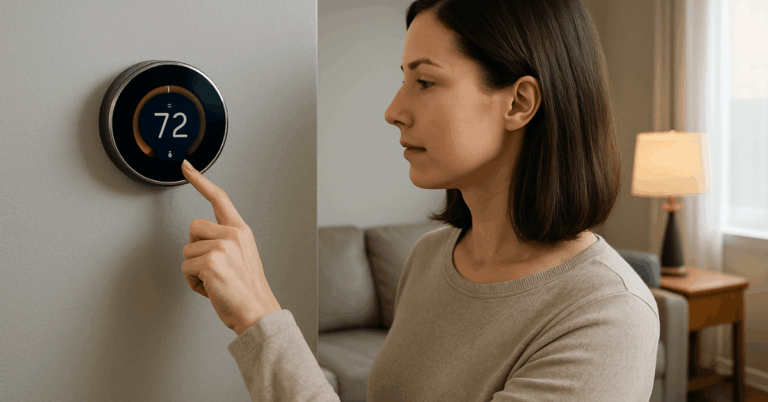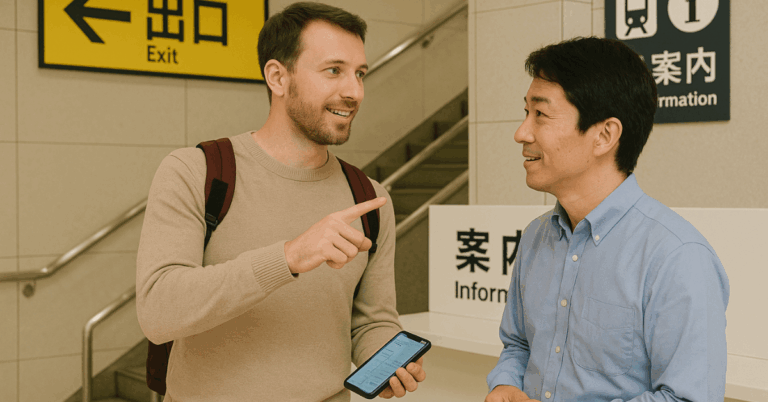Moving into a new apartment in Japan can be an exciting yet complex process, especially for those unfamiliar with the local rental system.
From understanding the financial requirements to navigating cultural expectations, there are several key factors to consider before signing a lease.
This guide provides essential tips to help ensure a smooth and informed transition into your new home in Japan.
Understanding the Japanese Rental Market
The Japanese rental market differs from what you may be used to, so understanding key terms and options is essential before you begin.
Here are the key aspects you should know:
Rental Options:
- Apartments (apartments in buildings or homes), shared accommodations, and guesthouses.
Common Terms:
- Key Money (Reikin): A non-refundable payment made to the landlord, usually equivalent to 1-2 months’ rent.
- Deposit (Shikikin): A refundable amount that covers potential damages or unpaid rent.
- Guarantor: A person or organization who guarantees that the tenant will fulfill the terms of the lease.
- Rent (Chinta): The monthly cost of the apartment, which can vary depending on location and size.
- Maintenance Fees (Kanrihi): Monthly fees for the upkeep of shared spaces and building maintenance.
Popular Locations:
- Proximity to public transportation and your workplace or school can significantly influence rent prices.
Lease Terms:
- Most Japanese leases are for 2 years, and there are options for both short-term and long-term rentals.

Key Considerations Before Signing a Lease
Before committing to a rental agreement in Japan, consider key factors to ensure the apartment meets your needs and the lease terms are clear.
Here are the key aspects to keep in mind:
- Location: Consider proximity to public transport, work, school, and nearby amenities like grocery stores and hospitals.
- Budget: Factor in rent, utility costs, maintenance fees, and any hidden expenses.
- Size: Ensure the apartment’s size suits your needs, especially if you have a lot of furniture or roommates.
- Lease Duration: Most leases are 2 years. Be aware of renewal clauses and options for early termination.
- Noise Level: Check for noise in the neighborhood and building, particularly near train stations.
- Safety: Verify safety features like secure entry points, emergency exits, and neighborhood safety.
Key Money, Deposit, and Other Initial Fees
When renting an apartment in Japan, several upfront costs should be taken into consideration. Here are the main fees you’ll encounter:
- Key Money (Reikin): A non-refundable payment (1-2 months’ rent) to the landlord, which is not returned at the end of the lease.
- Deposit (Shikikin): A refundable amount (1-2 months’ rent) to cover damages or unpaid rent, returned at the lease’s end minus any deductions.
- Maintenance Fees (Kanrihi): Monthly fees for maintaining shared spaces, separate from rent.
- Agent Fees (Chukai Tesuryo): If using a real estate agent, expect to pay a fee (usually equivalent to one month’s rent).
- Insurance (Hoken): Some landlords require renters to purchase insurance, which costs around ¥10,000 to ¥20,000 annually.
- Cleaning Fees (Reiki): A non-refundable fee to cover cleaning after moving out.
Guarantor Requirement
In Japan, most rental agreements require tenants to have a guarantor.
This is a crucial aspect of the rental process, particularly for foreigners. Here’s what you need to know:
- What is a Guarantor?: A guarantor is a person or organization that covers unpaid rent or damages if you fail to pay or breach the lease.
- Who Can Be a Guarantor?: Typically, a guarantor is a Japanese citizen or permanent resident, such as a friend, family member, or employer.
- Guarantor Company: If you do not have a personal guarantor, you can use a guarantor company for a fee of approximately 50% of one month’s rent.
- Responsibility: The guarantor is legally responsible for unpaid rent or damages, which can lead to complications if they are required to pay.
- Required Documents: Both you and the guarantor will need to provide documents such as proof of identity and income.
Checking the Condition of the Apartment
Before signing a lease, it’s crucial to inspect the apartment thoroughly to ensure it meets your expectations and is in good condition.
Here’s what to focus on when checking the property:
- General Cleanliness: Ensure the apartment is clean, including floors, windows, and bathrooms.
- Appliances and Fixtures: Inspect the condition of appliances (e.g., refrigerator, stove, washing machine) and verify that all fixtures are functioning correctly.
- Walls and Floors: Look for cracks, stains, or signs of water damage on walls and floors.
- Plumbing: Test taps, toilets, and showers to ensure there are no leaks or issues.
- Electrical System: Test lights, outlets, and switches to confirm that everything is functioning correctly.
- Windows and Doors: Ensure that windows and doors close properly and have functioning locks for added security.
- Noise Levels: Be aware of any unusual noises from neighbors or outside traffic, which may be disruptive.

Understanding the Lease Agreement
Before signing a lease in Japan, it’s crucial to review the terms carefully to avoid conflicts. Here are the key elements to look for in the lease:
- Lease Duration: Most leases are for 2 years, but check for renewal options or termination clauses.
- Rent and Payment Terms: Confirm the monthly rent, payment due dates, and accepted payment methods.
- Deposit and Key Money: Ensure the amounts for deposit and key money are clearly stated, along with any conditions for refund.
- Maintenance Fees: Verify if there are any additional maintenance or management fees separate from the rent.
- Termination Clause: Understand the conditions under which you can terminate the lease early or if the landlord can do so.
- Penalties: Be aware of any penalties for late payments, lease violations, or early termination.
- Insurance Requirement: Some leases require renters to purchase insurance. Verify if this is included in the agreement.
- Renovation Restrictions: Clarify if you’re allowed to make changes or renovations to the apartment.
- Subletting Rules: Confirm whether subletting the apartment is permitted, as many leases prohibit it.
Moving-In Process
The moving-in process in Japan involves several steps to ensure a smooth transition. Proper preparation helps avoid delays. Here’s what to keep in mind:
- Finalize the Move-In Date: Confirm the exact move-in date and arrange necessary apartment access.
- Set Up Utilities: Contact utility companies to set up electricity, gas, water, and internet.
- Inspect the Apartment Again: Do a final inspection to ensure the apartment is in the same condition as when you signed the lease.
- Pay Initial Fees: Prepare to pay key money, deposit, and other required fees.
- Moving Service: Consider hiring a moving company or using public transport for smaller loads.
- Register with Local Authorities: Register your address at the local city office within 14 days.
- Change of Address: Notify the post office and other relevant parties (e.g., banks, employers).
Cultural Considerations
Japan has specific customs that influence shared living spaces and interactions with neighbors. Here are key cultural considerations:
- Cleanliness: Keep your apartment and shared spaces clean, as cleanliness is highly valued in Japan.
- Noise Levels: Be mindful of noise, especially in the evening, due to thin walls in many buildings.
- Garbage Disposal: Sort your trash according to local guidelines, following Japan’s strict recycling rules.
- Respecting Neighbors: Avoid making loud noises during quiet hours, typically from 10 PM to 7 AM.
- Shoes Off Indoors: Always remove your shoes when entering your apartment or shared spaces.
- Handling of Packages: Pick up your packages promptly from the delivery service or convenience store.
- Proper Use of Shared Facilities: Respect the rules for common areas, such as laundry rooms and elevators.
The Bottomline
Moving into a new apartment in Japan requires careful planning and attention to both practical and cultural details.
By understanding the lease terms, budgeting for initial fees, and respecting local customs, you can ensure a smooth and successful move.
Take the time to prepare, and enjoy your new living space in Japan!












